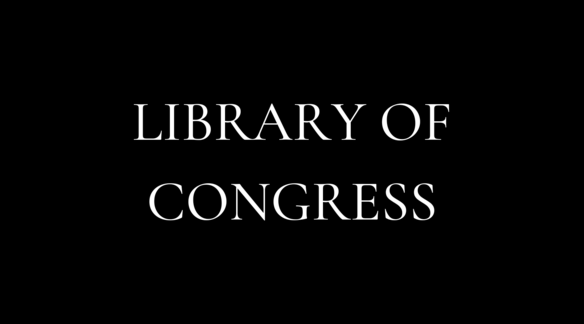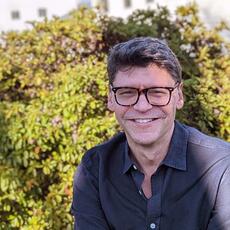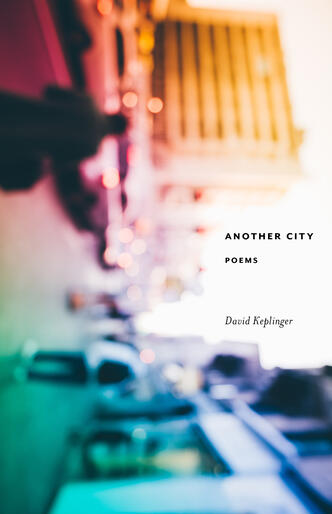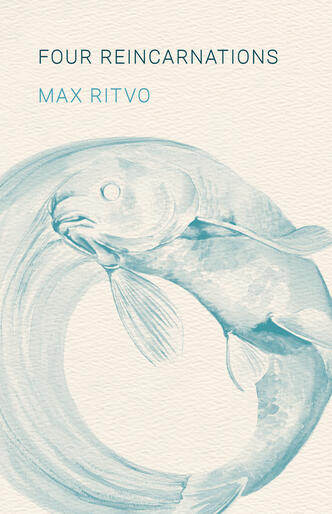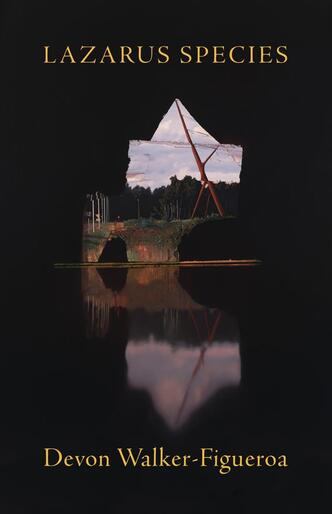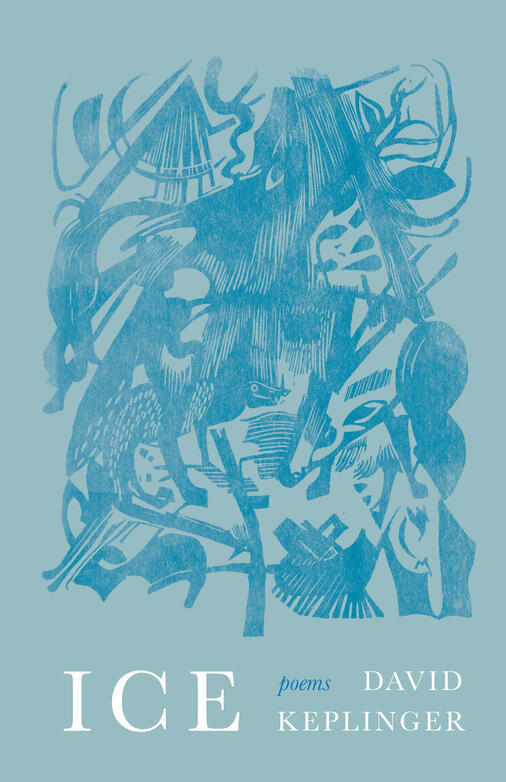
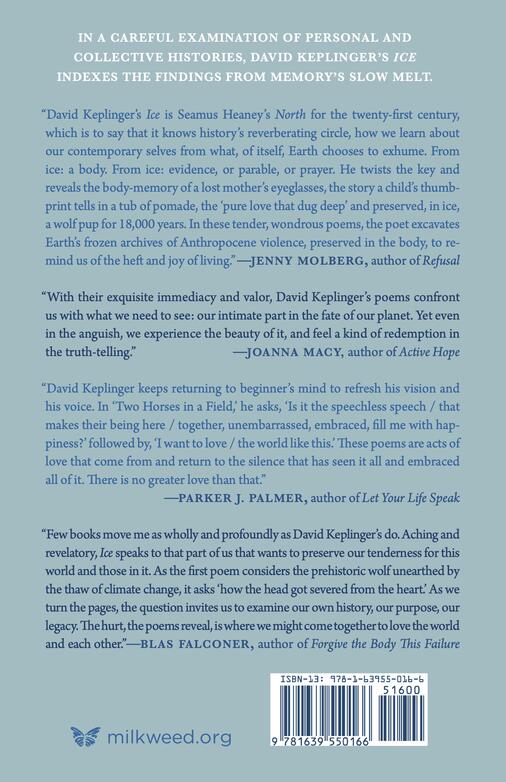
Ice
In a careful examination of personal and collective histories, David Keplinger’s Ice indexes the findings from memory’s slow melt—stories and faces we’ve forgotten, bones hidden in frost.
“I am asking how much more / I have to learn from this,” Keplinger writes. “You are asking that same question.” In these poems, he turns to our predecessors for guidance in picking apart the forces that govern modernity—masculinity, power, knowledge, conquest. Cryptic visitants arrive in the form of Gilgamesh, “searching for a way to stay in pain forever”; a grandmother mending socks, “her face in the dark unchanging”; Emily Dickinson, lingering at her window; a lion cub, asleep in ice for millennia.
With each comes a critique of the Anthropocene, our drive to possess the unpossessable. With each comes also the discovery of what—and who—we’ve harmed in the discovering. Ice shelves collapse. Climate change melts layers of permafrost to reveal a severed wolf’s head. A pair of grease-smudged reading glasses calls up a mother’s phantom. “I am sorry / for the parts you gave me / that I’ve misshapen,” Keplinger writes.
So is there “a point to all this singing”? Our ancestors cannot answer. The wolf’s head can’t, either. But sometimes, “out of the snow of confusion,” something answers, “saying gorgeous things like yes.” And the flowers “open up / their small green trumpets anyway.”
